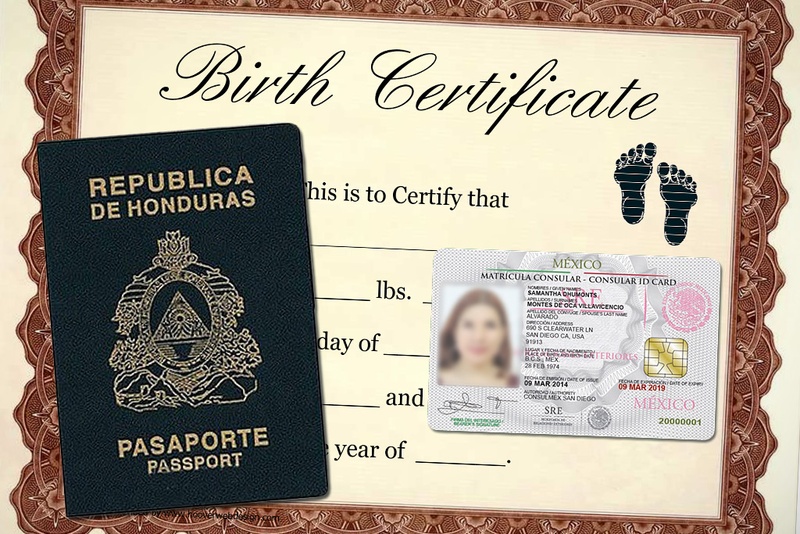Texas Reaches Agreement With Familes in Birth Certificate Case
After undergoing mediation, the state of Texas has reached an agreement with undocumented families in a lawsuit over its denial to issue birth certificates to children born in the U.S. to undocumented immigrants.
The state will clarify and expand the types of secondary forms undocumented immigrants can use to prove their identity, according to attorneys representing the group of undocumented parents and their U.S-born children who filed a lawsuit against the Texas Department of State Health Services.
Previously, immigrants in Texas could request birth certificates for their children if they had two secondary forms of ID, including Mexican voter registration cards and foreign IDs with a photo.
In the agreement, the state said it would accept voter ID cards received by undocumented immigrants in Texas by mail under recent changes to Mexican law, the attorneys said. Until earlier this year, the Mexican voter registration cards could only be obtained in Mexico.
The state also agreed to accept certain documents Central American parents can obtain from their consulates in the U.S. as secondary forms of ID if they are signed and stamped by consular officials. Under the agreement, the list of acceptable secondary documents was also expanded to include other supporting documents, such as copies of utility bills, paycheck stubs and letters relating to public assistance benefits, according to the families’ lawyers.
“We feel confident that undocumented parents with children born here will be able to access their children’s birth certificates,” said Marinda van Dalen, a staff attorney with Texas Rio Grande Legal Aid.
The Texas Attorney General’s office was unable to immediately provide comment on the case and would not confirm the state had settled. A spokesperson would only say the state had reached an “agreement” with the plaintiffs.
A Friday court filing signed by Texas attorney general Ken Paxton asked a federal district judge to stay the case “in order to give effect” to an agreement between the state and the plaintiffs following mediation that could eventually lead to the dismissal of the case.
“This agreement will allow the state to continue to provide necessary birth certificates to authorized people and do so in a way that maintains the security of state birth records,” said health department spokesman Chris Van Deusen. “The purpose of the identification requirement is to ensure that individuals requesting birth certificates are who they say they are.”
The families alleged the department violated the children’s constitutional rights by ordering local county registrars to no longer recognize Mexican consular IDs — known as a matrícula consular and issued by Mexican consulate offices throughout Texas — and foreign passports without valid visas as proof of identification that the parents may use to obtain the vital records.
The lawsuit was filed last year after Texas in 2013 barred those more common forms of ID and began requiring others that are difficult for undocumented immigrants to obtain, the families claimed.
State attorneys, who previously sought to dismiss the lawsuit, had argued those documents were susceptible to fraud and the the policy was was a way to safeguard the state’s efforts to prevent identity fraud.
“Without birth certificates, our clients lived in constant fear of having their families torn apart and their American-born children deported,” said Efrén Olivares, a regional legal director with the Texas Civil Rights Project and an attorney in the case. “They also struggled to get access to basic education, health and childcare services. This settlement will be life-changing for immigrant communities across the state.”
Julián Aguilar contributed to this report.
This article originally appeared in The Texas Tribune at http://www.texastribune.org/2016/07/25/texas-agrees-to-resolve-birth-certificate-case/.






